Changes after 1 month of applying the 2-level police model in Nghe An
After 1 month of implementing the 2-level police model, the commune-level police force in Nghe An has quickly stabilized, closely followed the grassroots, improved the efficiency of administrative procedure settlement and in the fight against crime.
Expanded functionality
Kim Son Town Police (Que Phong District) is one of 20 commune-level police units in Nghe An Province assigned to issue citizen identification cards and level 2 electronic identification accounts. In the first days of implementation, the unit not only received applications from other fields, but also had to handle a large number of people from communes coming to apply for ID cards and level 2 electronic identification accounts.
Despite the high number of transactions, thanks to proactive organization and staff arrangement, activities have taken place stably, smoothly, and without interruption.
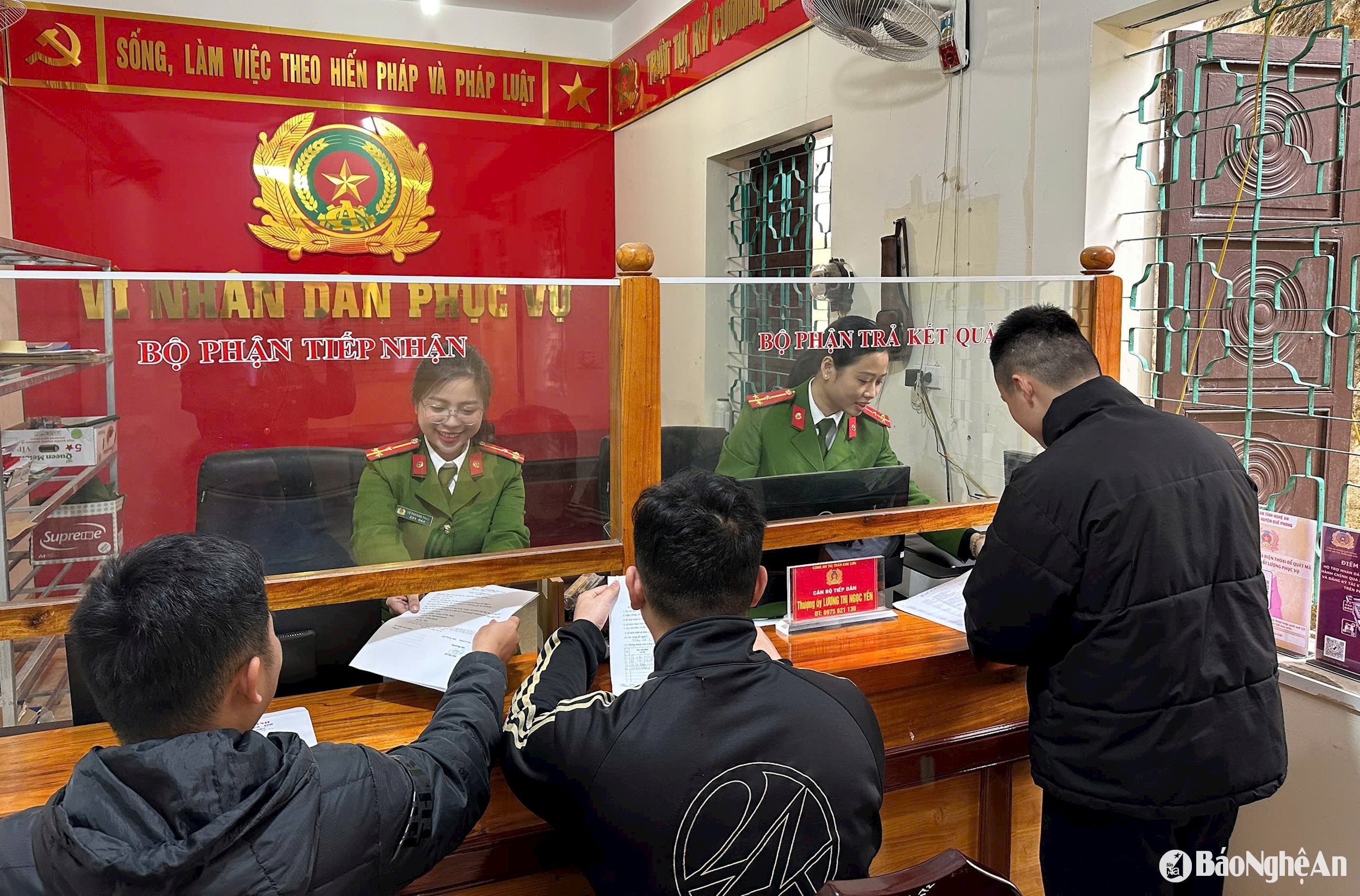
Ms. Ha Thi Hang, residing in Chau Kim commune, came to do the procedure to change her ID card, said: "After leaving the district police, I was worried that I had to go all the way to the provincial police to get a citizen ID card. But now, this task has been assigned to the town police, so I am very happy. When I arrived at Kim Son town police, the officers gave me detailed instructions, I only needed to bring my old ID card, take a photo, and all the information had been updated, so I did not have to declare anything."
When there is no longer a district police station, the commune police station will have to proactively handle the work arising from the expansion of functions and tasks. The unit has established working groups, assigning officers and soldiers to perform tasks in areas appropriate to their expertise.
Major Luong Tuan Minh - Chief of Police of Kim Son town, Que Phong district
From March 1 to now, Kim Son Town Police have received 656 applications for citizen identification cards, issued electronic identification accounts for 163 cases, registered motor vehicle management for 34 vehicles (13 cars and 21 motorbikes), registered permanent residence for 19 cases, temporary residence for 05 cases and confirmed residence for 50 cases.
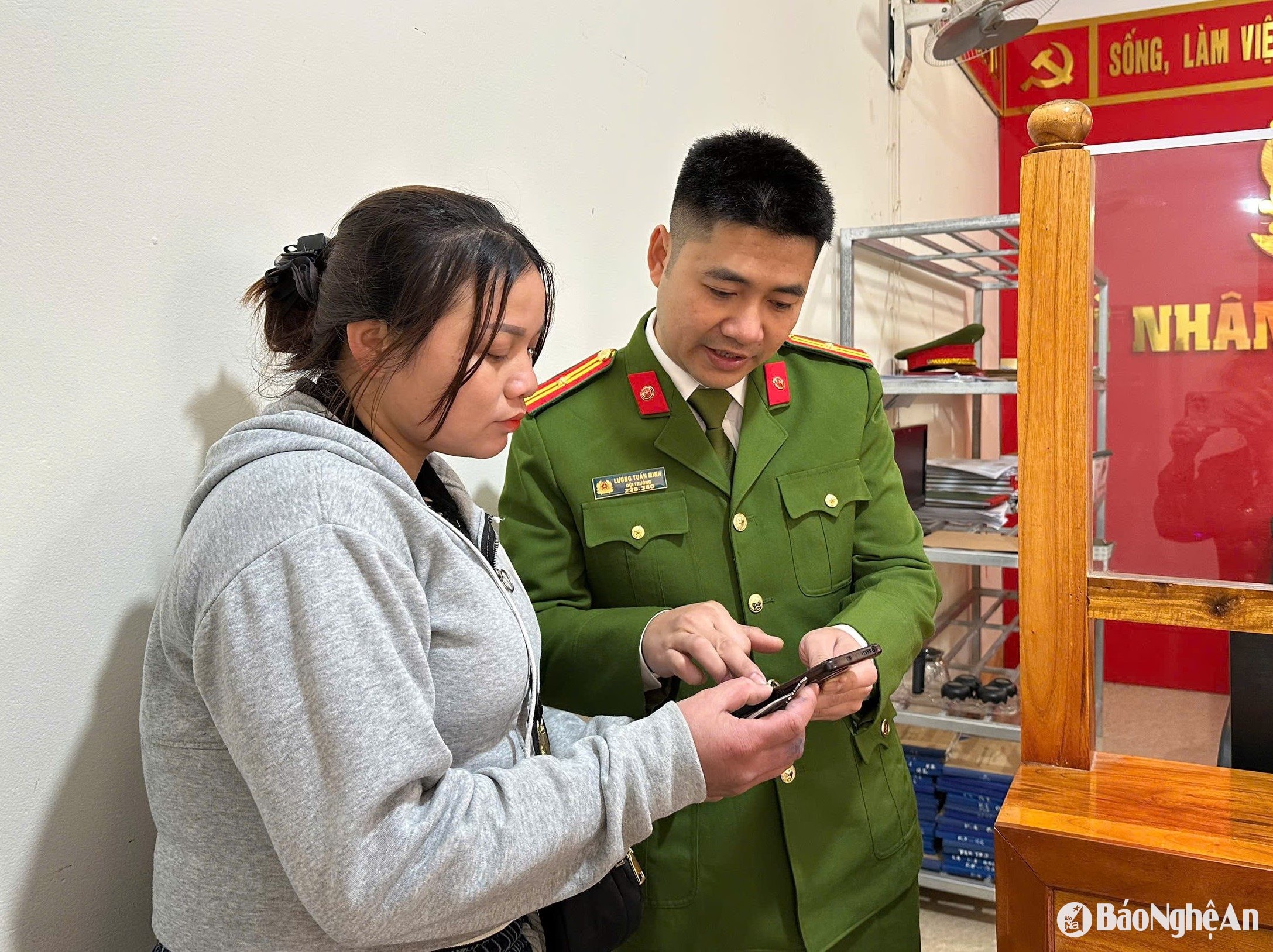
In addition to handling administrative procedures, the work of preventing and combating crimes and ensuring security and order in the area has also been carried out by the commune-level police, especially after the Ministry of Public Security issued Document No. 11 (effective from March 1), providing guidance on the arrangement of investigators and investigation officers at the commune-level police and the process of receiving, classifying and handling denunciations and crime reports before transferring them to the provincial-level police.
A typical example is the case of property theft that occurred in Thanh Huong commune (Thanh Chuong). In just over 3 hours after Mr. Nguyen Van T., residing in Hamlet 5, reported that the tea factory under construction was broken into and machinery worth more than 40 million VND was stolen, Thanh Huong Commune Police quickly solved the case. The two perpetrators were arrested and the stolen property was recovered and returned to the victim's family.
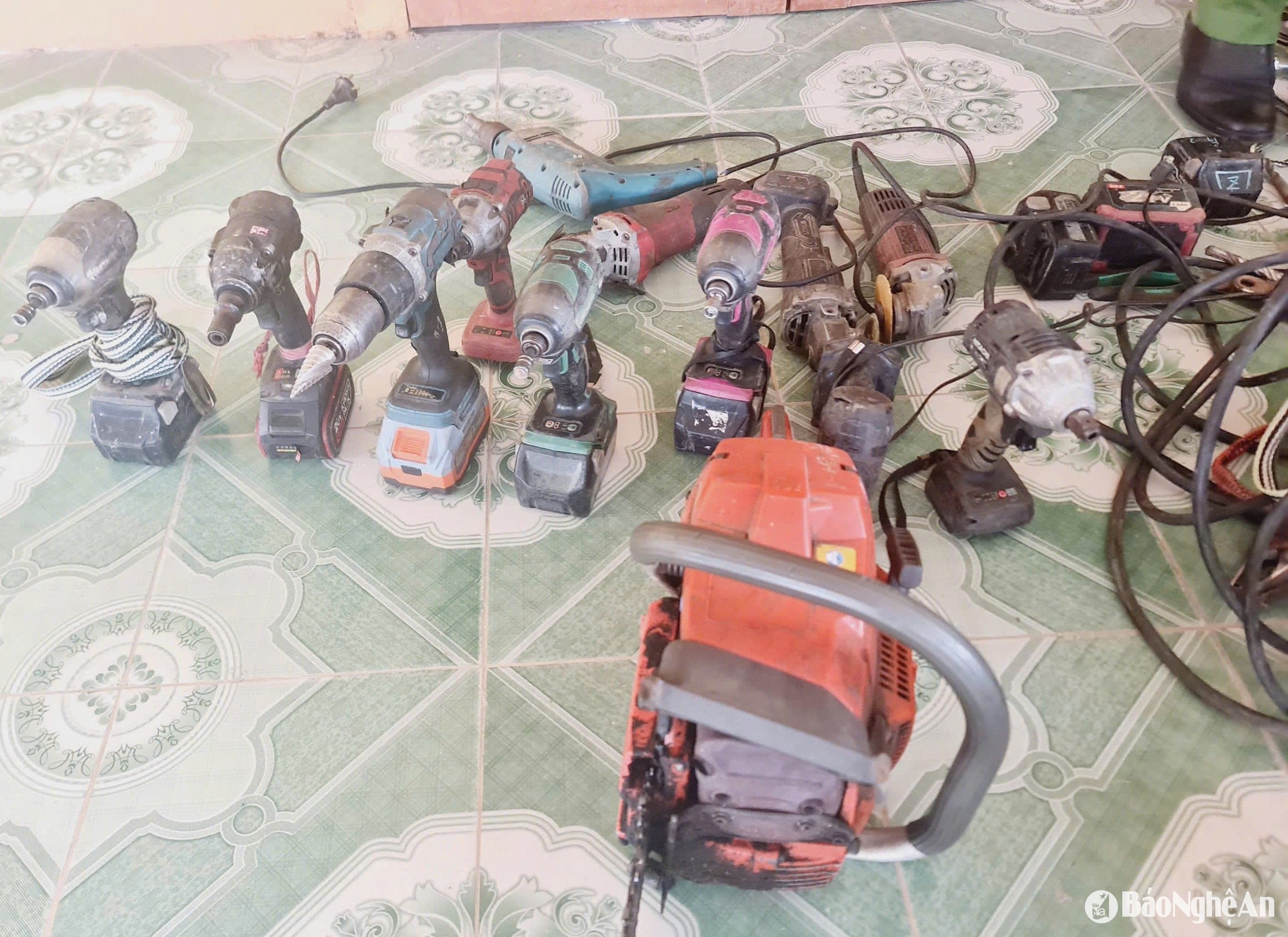
Mr. Nguyen Van T. recounted: "On the morning of March 12, I went to the tea factory and discovered that the warehouse had been broken into and the machines were missing. I immediately reported it to the Commune Police. In the afternoon, my family received news that the police had arrested the suspect and recovered the property. We were very happy and thanked the Commune Police for handling the case quickly and effectively."
According to Lieutenant Colonel Nguyen Anh Tuan - Head of Thanh Huong Commune Police, Thanh Chuong District, as soon as he received the report from Mr. T., the Commune Police quickly deployed professional measures to investigate. Although the incident occurred at night, in a deserted area and without witnesses, the officers and soldiers of the Commune Police still persistently tracked down and narrowed down the suspects, solving the case in the shortest time. After collecting enough evidence, the Commune Police arrested two suspects Tran Van T. (born in 1999) and Nguyen Van Ng. (born in 2008), both residing in Hamlet 6, Thanh Huong Commune, for the act of Theft of property...
"Comprehensive province, strong commune, close to the grassroots"
Since March 1, 2025, along with the whole country, the 2-level Police model (province - commune) has been officially deployed in Nghe An. With a proactive spirit and high determination, 412 commune-level Police units across the province have received new personnel, tasks and powers, overcoming initial difficulties to quickly get to work.
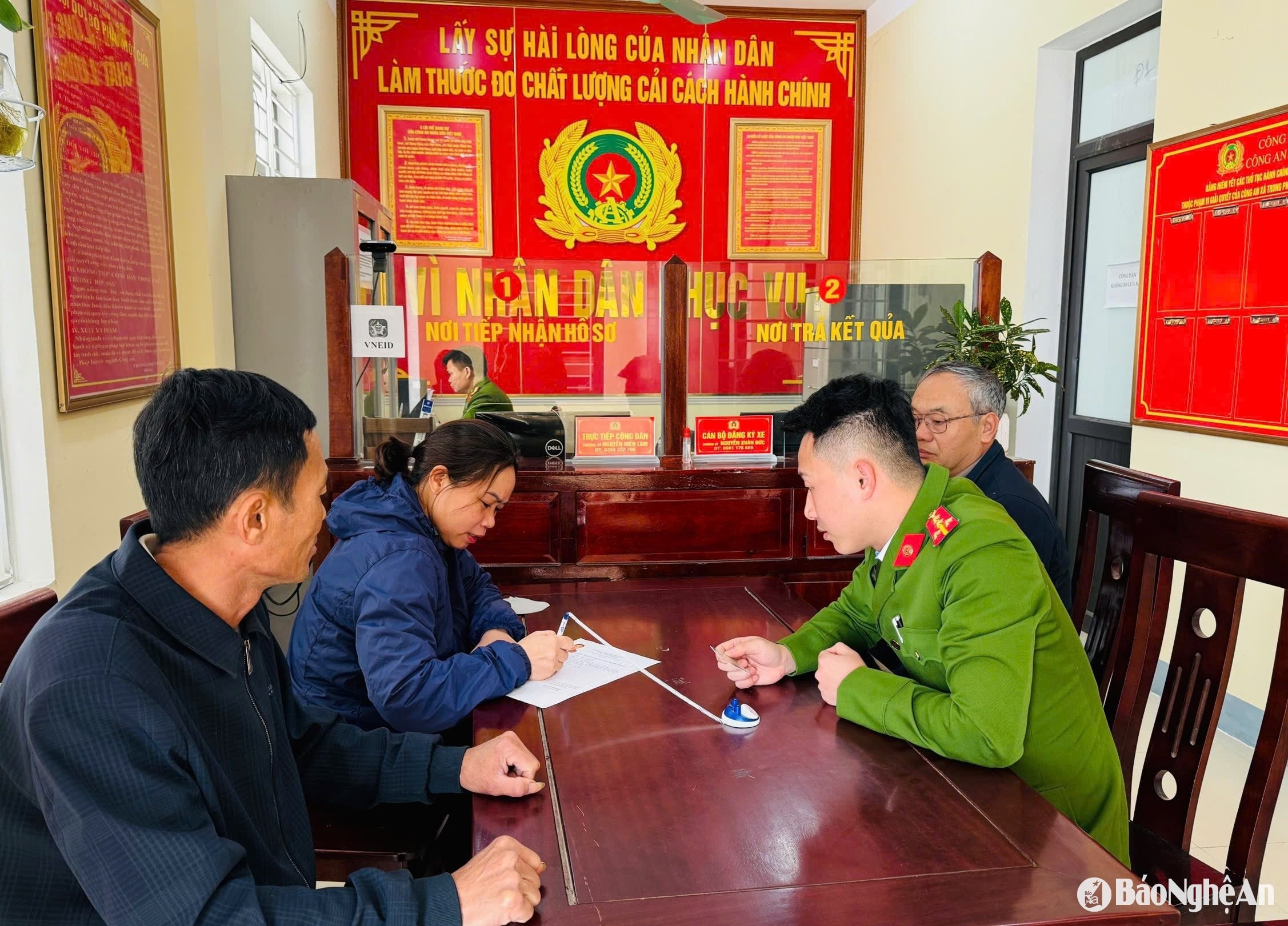
Following the direction of the Central Party Committee of the Public Security and the leadership of the Ministry of Public Security on the arrangement and streamlining of the local police apparatus, in order to ensure that the Commune-level Police perform well their functions and tasks, including new tasks, Nghe An Provincial Police have proactively completed the leadership and command team and added more troops to the Commune, Ward and Town Police. The decisions were made in the spirit of "Comprehensive Province, Strong Communes, Close to the Base", ensuring that they are suitable to the capacity, strengths and meet the practical requirements of each locality.
Nghe An Provincial Police also directed the police of communes, wards and towns across the province to proactively approach and carefully study the guiding documents of the Ministry of Public Security and the Provincial Police, in order to fully grasp and properly perform the assigned functions and tasks. The professional departments closely coordinate with the commune-level police, increase exchanges and guidance on expertise and profession, and at the same time support the resolution of situations and incidents related to security and order in the locality.
Key tasks that are focused on include removing difficulties in ensuring national security, criminal investigation, crime prevention, force building, logistics, state management of security and order, and ensuring traffic order and safety.
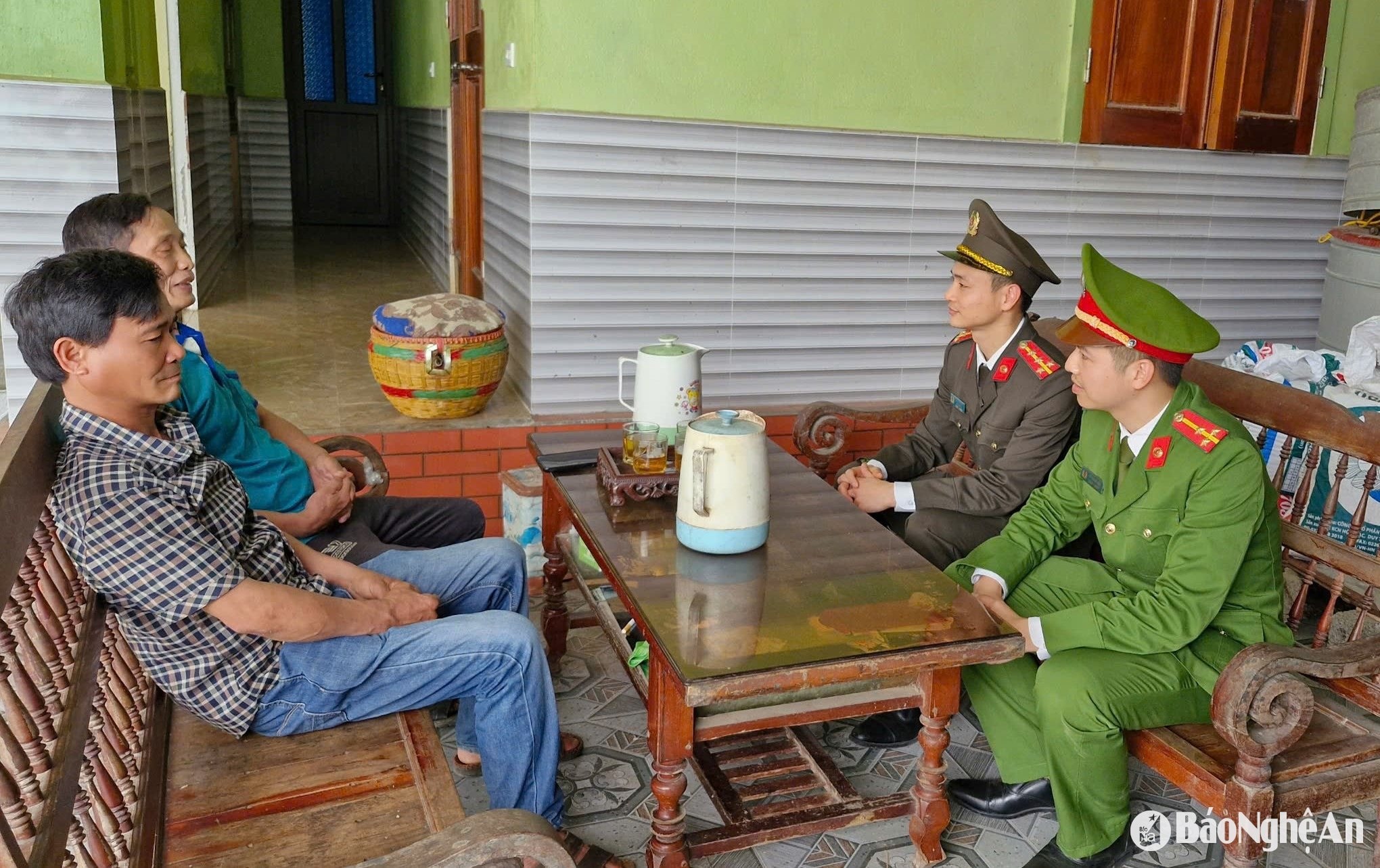
In order for commune-level police officers to perform their new tasks well, the Provincial Police Department focuses on training, fostering and providing necessary equipment and means. Previously, many procedures required people to go to the District Police, but now, thanks to decentralization, they can directly do the procedures at the Commune Police, such as vehicle registration, issuance of certificates of eligibility for security and order... In particular, many procedures have been integrated into the public service system, allowing people to complete requests through the online public service portal without having to go to the police.
In the coming time, Nghe An Police will continue to prioritize resources to consolidate and strengthen the force for the Commune Police, striving for each unit to have at least 12 officers.
In addition, the Provincial Police will focus on improving the application of science and technology and information technology, especially deploying a security system and transmission line to the Commune Police to send and receive electronic documents, monitor work targets and work progress. This not only helps improve management and operation efficiency but also ensures timely and accurate statistics and reporting of information, better serving the work of ensuring security and order at the grassroots level...
Colonel Tran Hong Quang - Deputy Director of Nghe An Provincial Police
The initial results have opened up great opportunities in reforming and improving the quality of police operations, contributing to effectively meeting the requirements of ensuring security and order throughout the province. However, according to Instruction No. 08 dated February 17, 2025 on decentralization of receiving and handling administrative procedures when there is no district-level police, from March 1, qualified commune-level police will receive and handle 35 administrative procedures.
In the immediate future, the Provincial Police need to quickly complete the criteria to identify qualified commune-level police units, to ensure that these procedures are handled promptly at the grassroots level. Because currently, some procedures such as issuing citizen identification cards and level 2 identification are still only carried out at the district, city, and town police headquarters (previously), which are undertaken by the town police.


